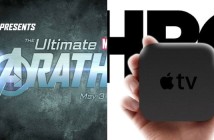Editor’s Note: Projecting features a selection of great film and television focused writing from around the internet.
A.A. Dowd explores the classical appeal of the Step Up franchise, for AV Club:
Outside of Bollywood imports and concert films, the most reliable source of cinematic swing in this country has to be the street-dancer movie—a post-millennial breed of crowd-pleaser in which plucky young breakers stomp the yard and feel the noise, when not romancing a fellow dancer or getting served by the scowling members of a rival crew. For the most popular example of this genre, look no further than the Step Up series, which just hit the five-film mark and is showing no signs of slowing down.
Nathan Rabin digs through the ridiculous pieces of Failure to Launch and finds a mirror to Matthew McConaughey’s career, for The Dissolve:
As an actor, McConaughey had a problem in common with Tripp: His life was just too easy. McConaughey didn’t really even have to act in order to continue collecting big paychecks for fluffy popcorn movies. All he had to do to keep the money train rolling along was show up on set, say his lines, smile that irresistible smile, and take off his shirt at regular intervals. His career was moving backward.
Patton Oswalt reveals what he discovered during his Twitter hiatus and his plans to do it again, for TIME:
The second and third week weren’t much different, but … they weren’t the same. A couple of times, in line at a grocery store or coffee shop, instead of taking out my phone to stiff-arm the creeping ennui, I’d look around instead. At the world. At the people around me. Most of them looking at their phones. We now inhabit a planet where the majority of the population is constantly staring downwards, entranced, twiddling like carpenter ants. Do pickpockets know they’re living in a second renaissance?
Eric Haywood, after a multitude of years with and viewings of Blade Runner, finds an entirely new way to see the film, for RogerEbert.com:
So this isn’t a film to be trifled with. And yet…I must. Because there’s something about “Blade Runner,” towering achievement though it may be, that I haven’t been able to let go of once I finally zeroed in on it. See, as he carries out his mission to track down and kill the replicants, Rick Deckard is presented to us in no uncertain terms as the hero of “Blade Runner.”
But he’s not. He’s the villain.




